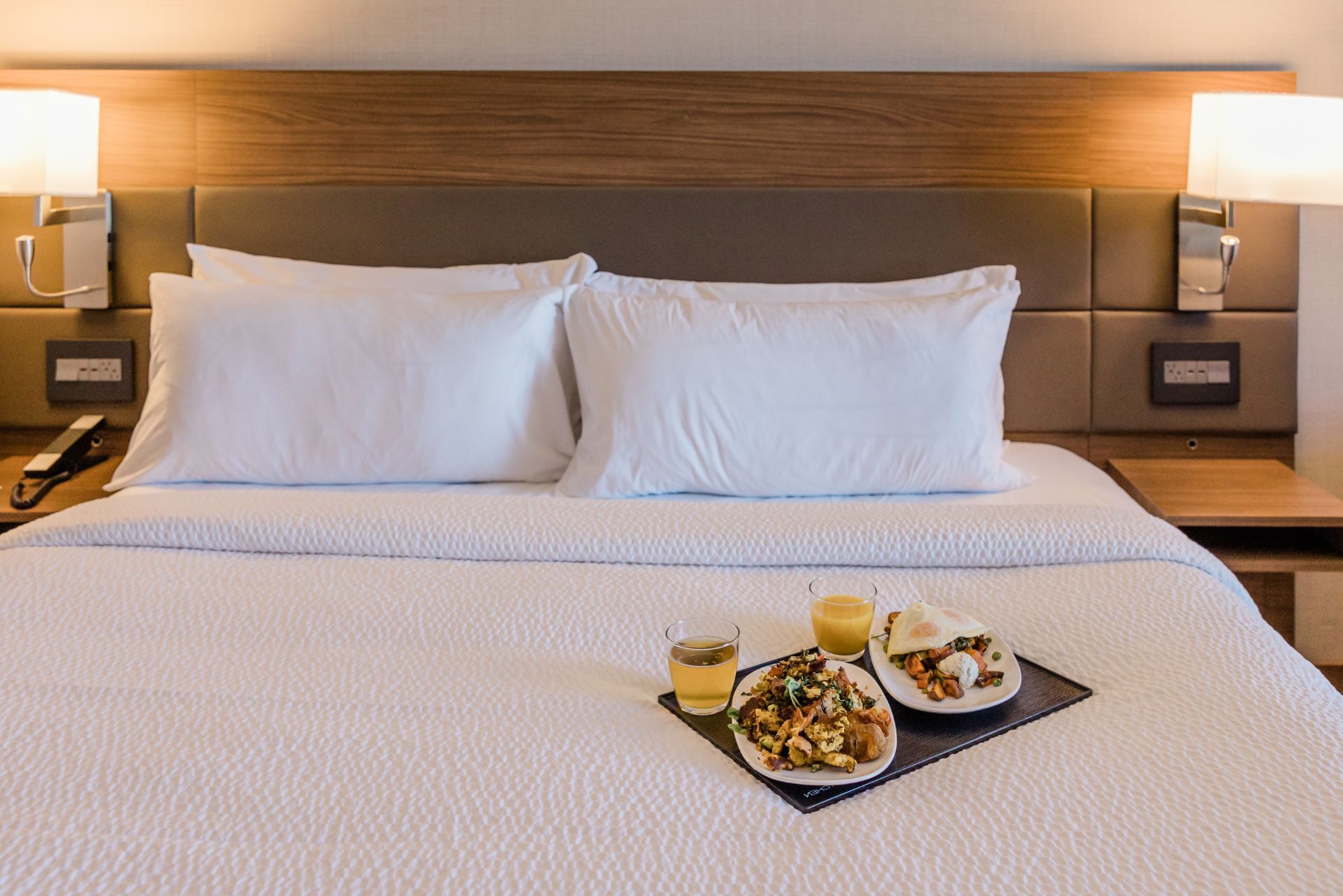Top 3 Recommended Policies

By: Lance Hale
Licensed Commercial Insurance Specialist
425-320-4280
Bed-and-breakfasts sit at the heart of Washington’s hospitality scene, offering travelers everything from Victorian mansions on Puget Sound to refurbished farmhouses in the Palouse. While the atmosphere feels casual and intimate, running an inn is undeniably a full-scale business, and every business needs solid insurance. This guide explores the policies, regulations, and risk-management practices that keep Washington’s B&B owners financially secure and legally compliant.
Understanding the Bed & Breakfast Landscape in Washington
Growth of Boutique Lodging
Washington welcomed more than 102 million visitor trips last year, according to the state’s tourism marketing authority. Although chain hotels still dominate urban centers, boutique properties now absorb roughly 11 percent of overnight stays statewide, double the share recorded a decade ago. The rise of agritourism in Yakima, craft-beer weekends in Bellingham, and coastal ecotourism in the San Juan Islands fuel ongoing demand for small, experiential lodging. This trend is not just about the accommodations; it reflects a broader shift in traveler preferences towards unique experiences that connect them with the local culture and environment. Visitors are increasingly seeking out properties that offer personalized service, local cuisine, and curated experiences that highlight the region's natural beauty and rich history.
Bed-and-breakfasts typically operate with five to twelve rooms, an owner-operator model, and a promise of local charm. That combination appeals to guests seeking authenticity but also introduces distinct operational risks. Buildings are often historic, breakfasts rely on open-flame cooking, and owners interact with guests in ways large hotels rarely do—all of which complicate their insurance profile. Additionally, many B&Bs are situated in picturesque locations, from the lush landscapes of the Olympic Peninsula to the vibrant urban neighborhoods of Seattle. This scenic backdrop not only enhances the guest experience but also raises the stakes for innkeepers, as they must balance the allure of their surroundings with the practicalities of maintaining safety and compliance with local regulations.
Unique Risks Facing Innkeepers
Because most B&Bs are conversions of older homes, electrical wiring, plumbing, and roofing can be outdated. Property insurers pay close attention to these factors, as roughly 29 percent of commercial property claims in Washington’s hospitality sector trace back to water damage or fire sparked by aged infrastructure. Furthermore, intimate settings increase liability exposures: guests mingle in shared parlors, climb steep antique staircases, and may even borrow bicycles or paddleboards from the property. The personal touch that defines a B&B experience can lead to unforeseen challenges; for instance, the close quarters can foster a sense of familiarity that might blur the lines of liability. Innkeepers must navigate these complexities while ensuring that their guests feel safe and comfortable, which can be a delicate balancing act.
Moreover, the unique offerings of each B&B can also lead to specialized risks. For example, properties that provide gourmet cooking classes or guided outdoor adventures may require additional insurance coverage to protect against accidents that could occur during these activities. The diverse array of amenities and experiences that innkeepers offer can enhance the guest experience but also necessitate a thorough understanding of potential liabilities. As the boutique lodging sector continues to grow, innkeepers must remain vigilant in assessing their operational risks and adapting their insurance strategies to safeguard their businesses and their guests.
Core Insurance Coverages Every B&B Should Consider
Property Insurance
This coverage protects the structure and its contents against events such as fire, windstorm, vandalism, and theft. Because many Washington inns reside in heritage buildings, owners should choose a policy written on a replacement-cost basis rather than actual cash value, ensuring funds are sufficient to replicate vintage woodwork or imported stained glass. Insurers also recommend an ordinance or law endorsement to cover code-required upgrades during rebuilding. Additionally, it is vital for B&B owners to conduct regular assessments of their property and update their insurance policies accordingly. This proactive approach helps ensure that any renovations or improvements made to the property are adequately covered, preventing potential financial losses in the event of a disaster.
General Liability
General liability addresses bodily injury or property damage claims from guests and visitors. A typical limit of $1 million per occurrence and $2 million aggregate is common for small inns, but higher limits may be prudent if the property hosts weddings or corporate retreats. The policy can respond when a guest trips on an uneven stone walkway or when a falling branch damages a parked vehicle. Furthermore, it is essential to understand the nuances of liability coverage, such as the inclusion of personal injury claims, which can encompass issues like defamation or false arrest. This added layer of protection can be particularly beneficial in the hospitality industry, where interactions with guests are frequent and varied.
Business Interruption
Loss of income following a covered peril can be catastrophic. Business-interruption insurance replaces lost revenue and can fund ongoing expenses such as mortgage payments and staff wages during restoration. Washington’s average rebuild period for fire-damaged hospitality properties is 7.8 months; without coverage, that downtime could erase years of profits. Additionally, it is wise for B&B owners to evaluate their policy limits based on their revenue streams and occupancy rates. By understanding peak seasons and potential risks, owners can tailor their coverage to ensure they are adequately protected against the financial fallout of unexpected closures.
Innkeepers’ Liability
State law holds lodging providers liable for guests’ belongings up to certain limits unless negligence is proven. Innkeepers’ liability (also called guest-property coverage) picks up when luggage is stolen from a room or jewelry disappears from a safe. Policies typically offer $10,000 to $25,000 in limits, scalable to suit clientele who arrive with expensive gear for skiing at Stevens Pass or sailing on Lake Chelan. Moreover, it’s important for B&B owners to communicate their liability policies clearly to guests, perhaps through signage or in the welcome packet, so that visitors understand the extent of coverage and the importance of securing their valuables. This transparency not only fosters trust but can also mitigate claims and disputes down the line.
Specialized Protections for Washington Properties
Earthquake and Volcano Coverage
Washington sits on the Cascadia Subduction Zone, and the U.S. Geological Survey puts the 50-year probability of a magnitude-9 megaquake at 15 percent. Most standard property policies exclude earthquake damage; adding a separate deductible-based endorsement is essential. Likewise, ash fall from eruptions at Mount St. Helens or Mount Rainier can clog HVAC systems miles away, warranting volcano peril extensions. Property owners should also consider the potential for landslides and tsunamis, which can be secondary effects of seismic activity. Understanding the specific geological risks in different regions of Washington can help tailor insurance coverage to ensure comprehensive protection against these natural disasters.
Liquor Liability for Wine Country Stays
Innkeepers in the Columbia Valley or Walla Walla often pour complimentary tastings or host small pairing dinners. If alcohol is served for a fee—or even “suggested donation”—general liability may not cover resulting incidents. A liquor-liability endorsement protects the establishment if a patron drives under the influence and causes injury after leaving the premises. Furthermore, the unique culture of wine tourism in this region means that establishments must also be vigilant about responsible serving practices. Training staff on recognizing signs of intoxication and implementing safe transportation options for guests can significantly mitigate risks and enhance the overall guest experience.
Cyber Risk Endorsements
Online bookings now account for 74 percent of B&B reservations nationwide, and Washington innkeepers rely heavily on property-management systems, credit-card processors, and Wi-Fi networks. Cyber coverage pays for data-breach notifications, forensic IT services, and legal defense when hackers steal guest credit-card data or ransomware locks down reservation files. As the digital landscape evolves, so do the threats; therefore, property owners should also invest in regular cybersecurity training for their staff. Implementing strong password protocols, multi-factor authentication, and routine software updates can significantly reduce vulnerabilities, ensuring that both the business and its guests remain protected in an increasingly connected world.

Legal and Regulatory Considerations
State Licensing and Compliance
All bed-and-breakfasts in Washington must obtain a Department of Revenue business license, collect lodging and sales tax, and hold a valid Food Handler Permit if breakfast is served. Fines for non-compliance can exceed $1,000 per violation. Insurers expect proof of compliance because operating without required permits can void coverage following a claim.
Fire Codes and Safety Standards
Local fire departments require annual inspections for properties with more than two guest rooms. Working smoke alarms in every sleeping area and interconnected alarm systems on each floor are mandatory. The Washington Administrative Code further mandates secondary egress routes for rooms above the first story. Failure to meet these standards not only endangers lives but also complicates claims, as insurers may reduce payouts if code violations contributed to the loss.
Cost Factors and Premium Benchmarks
Location and Construction
An inn on the Olympic Peninsula can expect property premiums roughly 15 percent higher than a similar inland operation due to windstorm and salt-air corrosion exposure. Conversely, premiums in drier central counties may be inflated by wildfire danger. Construction materials—brick, wood-frame, or composite—further influence costs; wood-frame Victorian houses average $1.75 per $100 of insured value, while modern fire-resistant structures may fall closer to $1.10.
Claims History and Risk Management
Underwriters scrutinize the past five years of loss experience. A single minor slip-and-fall claim may do little to premiums, but multiple water-damage incidents hint at systemic maintenance issues and could spike rates 20 to 40 percent. Documented preventive measures—such as quarterly roof inspections or kitchen hood-cleaning logs—often earn credits, trimming premiums by up to 10 percent.
Practical Risk Management Tips
Safety Protocols
Installing handrails on all interior and exterior stairways reduces fall incidents by up to 30 percent, according to the National Safety Council. Other inexpensive upgrades include non-slip mats in bathroom floors, motion-activated lighting on pathways, and carbon-monoxide detectors in boiler rooms. A comprehensive written emergency plan, shared with staff and posted in guest binders, guides evacuations and outlines severe-weather procedures.
Guest Screening and Policies
Clear house rules limit liability. Many Washington inns prohibit open candles in guest rooms and restrict access to kitchens after hours. Some require guests to sign a waiver before borrowing bicycles or kayaking gear, an approach that can forestall negligence claims. Background checks on temporary employees and contractors help protect against theft or misconduct that might otherwise trigger an insurance loss.
Collaboration with Neighbors and Community
B&B owners in historic districts often form mutual-aid pacts: if one property faces a fire, adjacent innkeepers share vacant rooms with displaced guests. These relationships keep refunds low and maintain reputation. Joining local chamber of commerce safety committees can also provide access to group-rate training sessions on CPR, food-handling, and cybersecurity.
Choosing the Right Insurance Partner
Working with Specialist Brokers
While any licensed agent can technically write a policy, brokers specializing in hospitality understand the nuances of guest-property coverage, liquor laws, and historic–building valuations. They also maintain relationships with niche carriers that package several coverages in a single “innkeeper program,” reducing administrative headaches and potential gaps.
Comparing Quotes and Endorsements
Collect at least three proposals. Compare not only premiums but also deductibles, sub-limits, and exclusions. Some policies sub-limit sewer-backup coverage to $25,000, which may prove inadequate for a basement inundation. Others exclude outdoor amenities such as hot tubs unless specifically scheduled. Request sample policy forms and ask the broker for a written explanation of differences before making a decision.
Claim Scenarios and Lessons Learned
Kitchen Fire in Historic Home
A Spokane Valley inn lost its 1902 carriage house when a grease fire spread from the commercial range. Because the owner had upgraded to a complete wet-chemical suppression system and kept inspection certificates current, the insurer covered $744,000 in rebuild costs and $218,000 in lost income without dispute. The lesson: modernize where possible and document everything.
Guest Injury on Wet Staircase
During a rainy Bainbridge Island weekend, a guest slipped on an exterior cedar staircase lacking non-skid treads. The fall fractured her wrist, leading to $78,000 in medical bills and lost wages. The inn’s general liability carrier settled for $95,000. Afterward, the owner installed traction strips and canopy awnings over exposed stairs, earning a 5 percent premium credit the next renewal cycle.
Data Breach During Online Booking
Hackers infiltrated a cloud-based reservation platform used by a Leavenworth lodge, compromising 1,200 guest credit-card numbers. The cyber-liability carrier paid $34,000 for forensic analysis, $21,000 for customer-notification letters mandated by state law, and $9,000 in legal defense fees. Two class-action lawsuits were dismissed on the grounds that no fraudulent charges were proven, but reputational damage lingered. Investing in multi-factor authentication and staff training now forms the property’s first line of defense.

Frequently Asked Questions
Do I need commercial auto insurance if guests only ride in my personal SUV?
Yes. If the vehicle transports guests, insurers categorize its use as commercial. A hired-and-non-owned auto endorsement may suffice if vehicles are rented occasionally, but regular shuttles require a full commercial policy.
Will homeowners insurance cover a single-room Airbnb operation?
Standard homeowners policies exclude business activity. Some carriers offer “home-sharing” endorsements for limited rentals, but once breakfast is provided or multiple rooms are offered, a commercial package becomes necessary.
How large should my umbrella liability limit be?
Industry groups recommend at least a $2 million umbrella for properties with fewer than ten rooms and $5 million for inns that host events. Factors such as net worth and proximity to litigious jurisdictions may push limits higher.
Can I reduce premiums by raising deductibles?
Often yes. Increasing a property deductible from $1,000 to $5,000 can shave 8 to 12 percent off the annual premium. Evaluate cash reserves to ensure higher out-of-pocket costs are tolerable.
Does accepting pets affect coverage?
Many policies exclude animal-related injuries unless an endorsement is added. Declare pet-friendly status to the insurer; failing to do so could void protection if a dog bites another guest.
Final Thoughts
Running a bed-and-breakfast in Washington delivers the joy of hospitality and the reward of independent entrepreneurship, yet it also presents complex risks unique to the state’s geography and regulatory environment. Comprehensive insurance—not just a patchwork of generic policies—stands as the cornerstone of financial resilience. By understanding core coverages, adding state-specific endorsements, practicing diligent risk management, and partnering with specialist brokers, innkeepers can focus on crafting memorable guest experiences while resting assured that unforeseen events will not derail their business dreams.

